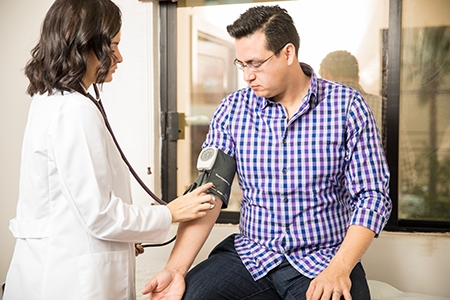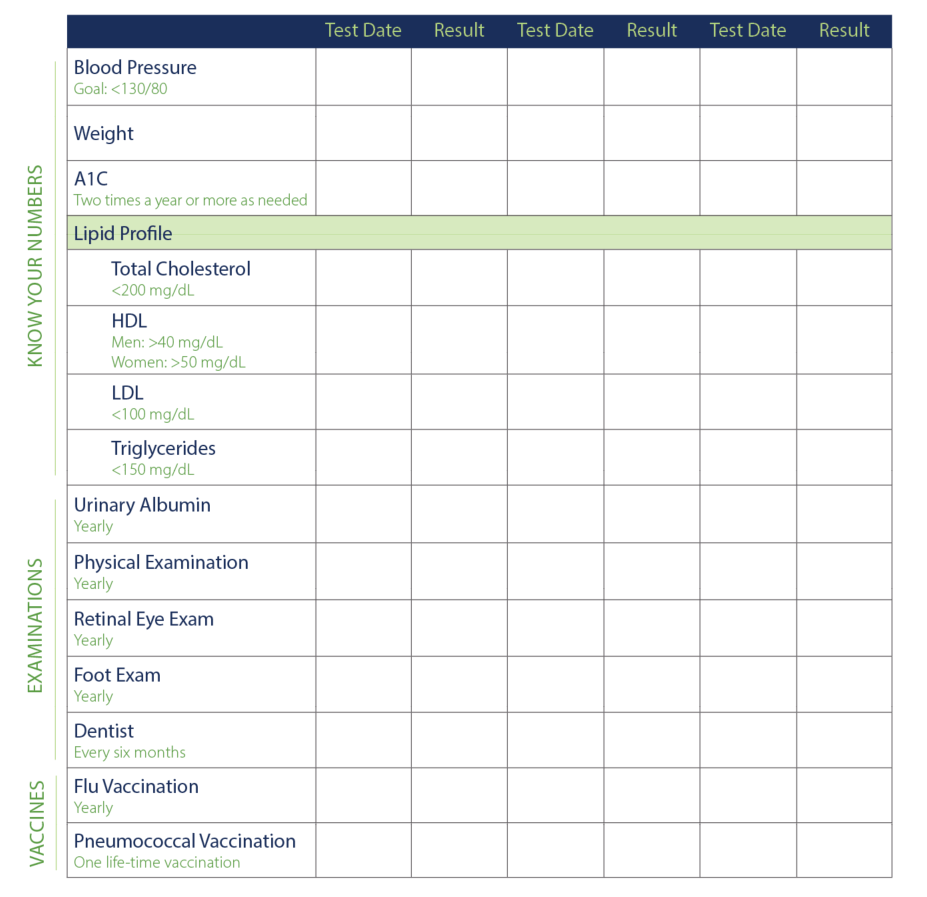Diabetes Management

Diabetes is a chronic condition that can have serious complications if not managed well. With the support of good providers and a commitment to your health, you can manage your diabetes so that you are healthier and feel better.

Type 2 Diabetes
Type 2 Diabetes is the most common form of diabetes. In type 2 diabetes, your body does not use insulin properly. This is called insulin resistance.
At first, the pancreas makes extra insulin to make up for it. But, over time, your pancreas isn’t able to keep up and can’t make enough insulin to keep your blood glucose levels normal.
When glucose builds up in the blood instead of going into cells, it can cause damage to your eyes, kidneys, nerves, and heart.
Type 2 diabetes can be treated with lifestyle changes, oral medications (pills), insulin, and caring for your mental health.

Steps to Manage Your Diabetes
The American Diabetes Association has recommended that diabetic patients develop the following habits to best manage their diabetes on a daily basis.
- Take care in choosing what you eat, when you eat, and how much you eat.
- Work to achieve and maintain a healthy weight.
- Make a plan to be active.
- If prescribed medications, understand your prescriptions and take them as directed.
- Be sure to get all recommended tests including, A1C, blood pressure, cholesterol, eye exams, and foot exams.

Know Your Numbers
Knowing your numbers and caring for your mental health is essential to managing your diabetes effectively. This sheet is designed to help you track your numbers over time and make adjustments in your lifestyle and treatment plan in conjunction with your provider.


Diabetes & Mental Health
Just like taking care of your body, taking care of your mind is equally important to living a healthy life. When left untreated, mental health conditions like depression and anxiety can make diabetes worse. Likewise, existing diabetes can cause mental health conditions to worsen.

Download the Free Resource
Access a printer-friendly version of the resource to reference later.

